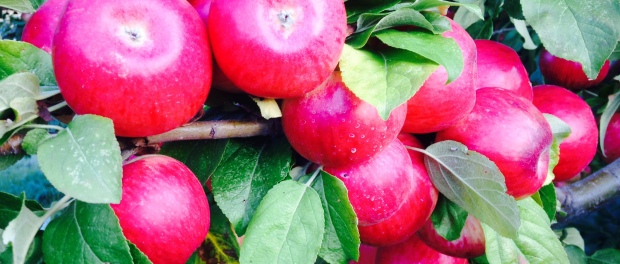Holiday Gift Ideas For The Aspiring Cider/Mead-Maker

Well, folks, it’s that time of year again: The Holidays. And besides being the perfect excuse to bust out the home-fermented beverages, the holidays are a time for something else: awkward, anxiety-laden gift-giving. Anxiety which requires consumption of home-fermented beverages to deal with. Consumption which continues the vicious cycle. But I digress.
If you have an aspiring cider or mead-maker in the family–or, heck, if you are one yourself–perhaps I can help you with some gift ideas.
If you’re not into discussions of home cider-making, mead-making or the equipment and process thereof, please forgive me–this would be a good time to check out and await my next installment (or, to be honest–to visit Along Came A Cider or the Cider Guide).
But if you are–or if you’re curious–below are a couple deals I’m seeing out there, plus some specific recommendations broken down for the beginning or intermediate cider or mead-maker in your household.
If you have an advanced cider or mead-maker in the household, he or she will likely be more particular about their needs than I’ll provide below. Get them talking about future plans and see what you can derive about their needs from that. Good luck…
As always, note that I use affiliate links, so if you click through and buy any of the mentioned items, I get a small commission which helps support the site. Thanks in advance!
Deal Roundup
Being on the mailing lists of the various online retailers of home brewing gear, I’ve received a few interesting items Black Friday items recently that I figured I’d share with you.
Kegs:
Adventures in Homebrewing is currently running a sale on 5-gallon Ball Lock Kegs. At $70, that’s $50 off their typical price for new kegs of this type–which is a nicer, rubber-handled style than you often see with new kegs (which are often cheaper, Chinese-made affairs without rubber feet or handles). If this is your first keg, though, you’ll likely need to pick up some connectors and gas tubing as well in order to hook it up. If you’re new to kegging, head over to the kegging tutorial for more information.
Deals Of The Day:
Morebeer typically runs a single deal of the day on their homepage, replacing it with a new one the next day (for those of your who are unfamiliar with this, that item is discounted for a limited time if you use the code ‘BEERDEAL’ at checkout and if that item is still in stock). On 11/28, they’ll be running a new one every 15 minutes starting at 9am PST. So head over to morebeer.com and keep your eyes peeled…
For Beginning Cider/Mead-Makers
Resources:
Cider: Making, Using, and Enjoying Sweet and Hard Cider—A great introductory text to cider-making.
The Compleat Mead Maker—the mead-maker’s bible, really; everyone who knows their mead these days also knows this book.
See more about both on the books page.
Equipment:
Home Brewing Starter Kit–if you don’t already have brewing equipment, start here. A brew kettle is not needed in addition to this, however, since cider doesn’t require a heat process (mead doesn’t either, though it’s often pasteurized in early stages, in which case a kettle would be helpful).
Intermediate:
Equipment:
Speidel 8 gallon fermenter–I recently added one of these to my arsenal and it’s one of the best things I’ve ever done. The spigot on the bottom is highly convenient for transferring (you don’t have to use a racking cane, and the fluid level of the spigot area is above where the sediment pools, so you can cleanly transfer without worrying about sediment/trub/lees coming along for the ride), and the top opening is wide enough to get fruit into if you’re making a melomel or fruit cider. Convenient, convenient, convenient. Not strictly an intermediate choice, but if you’ve worked with standard glass fermenters for a while, you’ll appreciate the features this brings to the table.
Oak Cubes–If you’ve got basic ciders or meads under your belt, it’s a good time to start playing with oak. You can really add a lot of character in terms of tannin, body, and color to your creations with it. A note of caution, however–darker toasts can add a powerfully smoky flavor to an otherwise delicate beverage, and American Oak imparts a stronger flavor than does French oak. That’s not always a bad thing, though–I recently took 3rd in a mead competition in the melomel category for a powerfully tannic, black currant melomel that sat on one of these for a month.
Start with French oak, medium toast for the mildest flavor addition, and monitor the flavor every week or so as your creation ages on it to avoid over-infusing. Good luck!
Or…just ask me.
Should you be interested in custom recommendations for yourself or others along the lines of amateur cider or mead-making, simply hit me up on the Contact Page, let me know a few details, and I’ll see what I can put together for you.
–
Thanks for visiting The Cidersage Blog. If you found this content to be useful, consider subscribing via the Subscribe link in the side bar, and be sure to visit our resources and tutorials pages for more in-depth hard cider and mead information.
Leave a comment